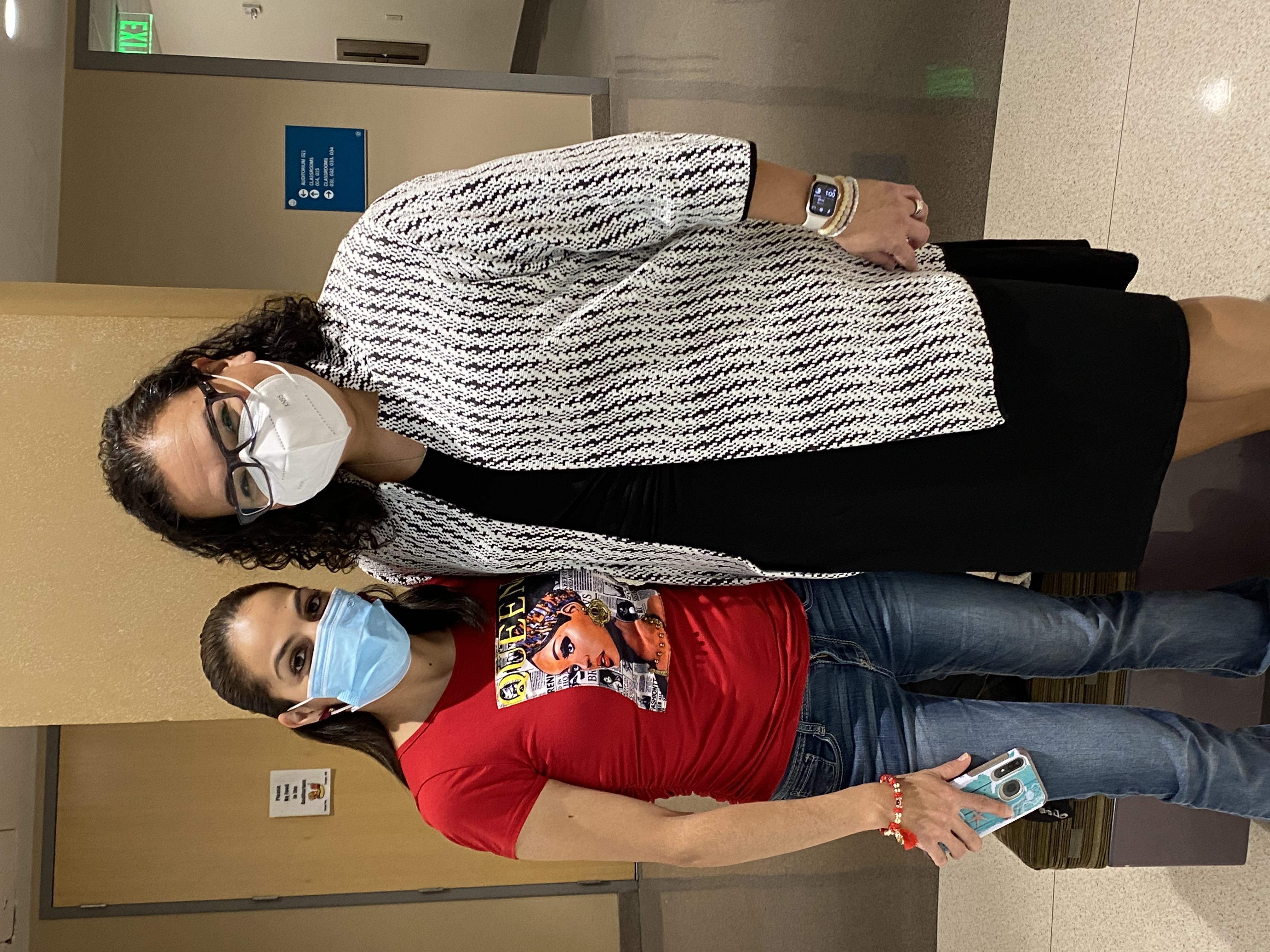A Commitment to Student Access and Success at Berkeley City College
Named president of Berkeley City College, a community college in Berkeley, California, in April 2020, Dr. Angelica Garcia is committed to student access and success, which frames how she leads the college. She describes access as “more than just getting students through the door, but how are we designing policies, priorities and procedures to be focused on the student? How does the syllabus work? How does grading work? How do we lead students to be successful?”
For example, the college’s Fall Is Free 2022 campaign pays the enrollment costs for in-state students per unit and campus, as well as student and health fees for students who enroll in at least three units and complete a FAFSA (Free Application for Federal Student Aid) form.
Another key aspect of her presidency is hiring and making sure leadership holds students and faculty accountable.

In fall 2022, BCC's enrollment of 5,958 students consists of 30% Hispanic students, 22% White, 21% Asian, 16% African American, and 7% bi-racial, so it’s extremely diverse. Reflecting Dr. Garcia’s point about social mobility, over 50% of last year’s graduating class are first-generation college students, and 69% of its students receive financial aid. Its three most popular majors are Psychology, Biology, and Business Administration.
When Dr. Garcia started as president in early May 2020, the pandemic was about to strike and disrupt learning. Hence, there was no transition time. Dr. Garcia had to jump right in, meet her staff through Zoom calls, and aid the transition to remote learning. She said her primary goal was “to connect with the leadership team and with as many people as possible and utilize this virtual space to get to know people and the community.”
Yet Berkeley City College (BCC) didn’t see major enrollment declines, as many colleges did due to the pandemic. “We did a lot of outreach to students and figured out a way to stay connected. It felt old-school. You pick up the phone to reach people and ask how they’re doing,” she said. It also introduced hot meal distribution, partnering with local businesses, and worked with Eat, Play, Learn, a non-profit that provides kids and families access to healthy food, which drew students to campus.
Dr. Garcia was born in the U.S. and raised by her Mexican parents in Fresno, the agricultural area of California. She graduated from San Diego State University with a master’s in social work, has a doctorate in educational leadership from San Francisco State University, and held administrative positions at Saint Mary’s College in Moraga, California and Skyline College, a community college in San Bruno, California. Prior to that, she taught ethnic and religious studies at the LaSalle Academy on the Lower East Side in New York City.
That social work and educational leadership background shape her educational vision. “It anchors me to stay focused on not losing my humanity, and stay focused on the students,” she stated.
Berkeley City College (BCC) is revising its Educational Master Plan, which will chart its priorities over the next five to seven years. Some key questions being addressed include: 1) How can it help end generational poverty in the local community? 2) How can it address and reverse the impact of gentrification in the local community? 3) How can it provide access to higher education to ensure that the East Bay community impacts generations to come? 4) How can it reach out to the community, local K-12 districts, community-based organizations and local partners to attain its goals?

Asked why its educational plan delves into so many community issues that seem outside of education, Dr. Garcia explained that “We have a huge wealth gap in the Bay area. Poor families are being priced out and pushed out. If you can’t afford a higher education and live there, how are they going to return to the community?” she wondered.
One of Dr. Garcia’s first initiatives as president in 2020 was establishing BCC as a Hispanic Serving Institution (HSI), focusing on STEM opportunities for its Latino and other students. It meant a considerable amount to her “because I understand first-hand the impact a college education has on Latinx communities for accessing social mobility ending generational poverty and integrating Latinx cultural wisdom and knowledge into the academy.”
For example, BCC offers a biotechnology program, and because of its status as an HSI, the college received a $3 million grant from the California Institute of Regenerative Medicine that leads to paid internships. Moreover, it obtained a $3 million Conocimiento Los Caminos grant that has four major goals: increase student success, increase transfer success, improve career and job placement, and provide professional development.
Berkeley City College is not to be confused with the University of California-Berkeley, a well-respected four-year college, which it has a strong collegial relationship with. Many of its graduates transfer to UC Berkeley, which inspires teamwork between colleges. Student organizations at UC Berkeley offer resources to BCC, particularly for minority students of color. In fact, Dr. Garcia points out that BCC is the “second largest transfer college to UC Berkeley.”
Dr. Garcia is already embarking on planning BCC’s 50th year anniversary in 2024. “We’re raising funds so that students can use it for tuition, taking courses and having access to textbooks,” she said. Moreover, the goal is to leverage community partnerships and “increase our footprint and recognition in the city of Berkeley,” Dr. Garcia said.
Asked about the keys to working closely with its faculty, Dr. Garcia replied, “Communication, communication, communication. I make myself available, and I don’t mince words. And I don’t overpromise. If I make an error, I’ll admit it and move on. The faculty appreciates that, because I’ve taught and I know what it means to be in the classroom.”
Throughout the interview, Dr. Garcia’s tone is enthusiastic and upbeat, not careful and detached, like many a college president. She explained her positive, energized outlook by saying, “When we set high expectations and give students support, they achieve it and surpass it.”
Asked what question the reporter didn’t broach to her, Dr. Garcia responded with, “How does my identity as a Chicana, queer and parent” affect her? Her Chicana background has fueled her “focus on issues of social justice,” she explained. Her queer Latina background should open the door for many students of color facing similar issues of struggling to come out. Finally, being a parent of two young children while balancing a leadership role in higher education should also serve as a role model.
Two years from today, Dr. Garcia expects that BCC will be in the midst of its 50th year celebration, and will be close to opening its new building in the heart of downtown Berkeley, which adds art studios, classrooms and an expanded Learning Resource Center for tutoring.
Returning to her favorite themes of student access and success, she noted, “We’d also like to raise more money to support students who want to go full-time, and give them a fighting chance to do so.”